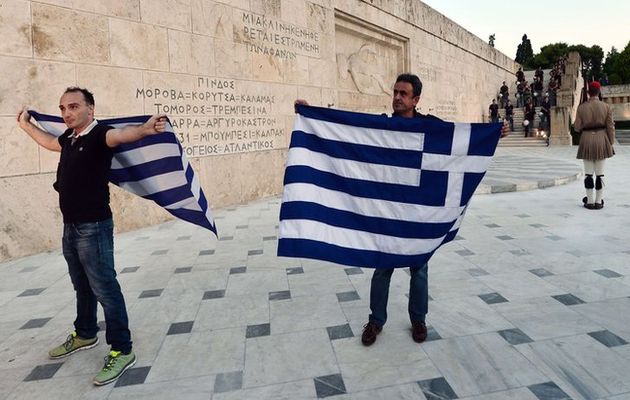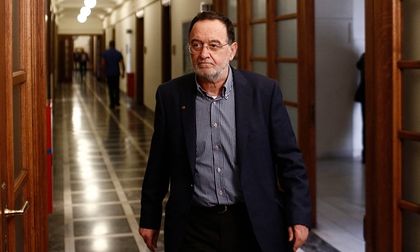Greece accepted the negotiation of a third bailout and immediate structural reforms. Parlamentarians of Syriza say the “deal is unacceptable”, and define it as a “coup.”
 Many Greeks have expressed their anger for the agreement. /Getty images
Many Greeks have expressed their anger for the agreement. /Getty images
Greek Prime Minister Alexis Tsipras faces a battle to persuade MPs within his government to back a third bailout offered by Eurozone leaders.
Four pieces of legislation must be passed by the end of Wednesday, including pension and VAT reforms.
But Defence Minister Panos Kammenos, a junior coalition partner, has said he will provide only limited backing. "The night before last, there was a coup. A coup in the heart of Europe", Kammenos told reporters outside Parliament. "They want the government to fall and to replace it with one that hasn't been voted on by the Greek people", he commented.
Some 30 Syriza MPs, led by left-wing Energy Minister Panagiotis Lafazanis, could defy the prime minister, but the urgent reforms would go through with the help of opposition party support.
 Greek Energy Minister Panagiotis Lafazanis.
Greek Energy Minister Panagiotis Lafazanis."The deal (...) is unacceptable and does not deserve to be charged to a radical political party such as Syriza, and a battling government that promised to abolish ... austerity," Lafazanis said in a statement posted on his ministry website. Germany, he stated, treated Greece "as if it was their colony and (behaved) as brutal blackmailers and `financial assassins'."
Many Greeks have expressed their widespread anger online using the hashtag #ThisIsACoup. Civil servants have called for a 24-hour strike on Wednesday.
EUROZONE MINISTERS DISCUSS GREEK DEBT
As the government in Athens struggles to stay afloat, Germany's Finance Minister Wolfgang Schaeuble has reportedly suggested Greece should start issuing IOUs to pay domestic bills such as public sector salaries.
Mr Schaeuble had earlier backed Greece's exit from the euro, and his latest intervention would be seen by many as a first step towards a parallel currency.
 Eurogroup president Jeroen Dijsselbloem.
Eurogroup president Jeroen Dijsselbloem.As EU finance ministers took part in a scheduled meeting in Brussels on Tuesday, the head of the Eurogroup, Jeroen Dijsselbloem, said there were difficulties in arranging "bridge financing" that would cover Greece's short-term needs.
"We're looking at all the instruments and funds we could use, and all of them seem to have disadvantages or impossibilities, or legal objections," he said.
Britain won’t contribute any money to the Greek bailout, declared UK chancellor George Osborne as he arrived at today’s meeting of EU finance ministers in Brussels.
CONDITIONS OF THE AGREEMENT
Eurozone leaders agreed a conditional deal on Monday to provide up to €86bn of financing for Greece over three years.
The loan will come mainly from the European Stability Mechanism (ESM) - the Eurozone bailout fund. But the International Monetary Fund will also be asked to make a contribution from March 2016
The Greek parliament must immediately adopt laws to reform key parts of its economy - by Wednesday. The reforms include: streamlining the pension system and boosting tax revenue - especially from VAT.
They also committed to liberalise the labour market, privatise the electricity network and extend shop opening hours.
 Alexis Tsipras with the Eurogroup. / Reuters
Alexis Tsipras with the Eurogroup. / ReutersAdditionally, a new trust fund will be set up, managed by Greece, with €50bn of Greek assets. Half of the €50bn will be used to fund recapitalisation of Greek banks, the other half will go towards reducing Greece's debt mountain - by privatising assets - and investing in Greece.
The European Commission will try to mobilise €35bn - outside the ESM loan - to help Greece with growth and job creation.
But Greece is still faced with a short-term cash crisis. Banks have been shut since 29 June.

Las opiniones vertidas por nuestros colaboradores se realizan a nivel personal, pudiendo coincidir o no con la postura de la dirección de Protestante Digital.
Si quieres comentar o